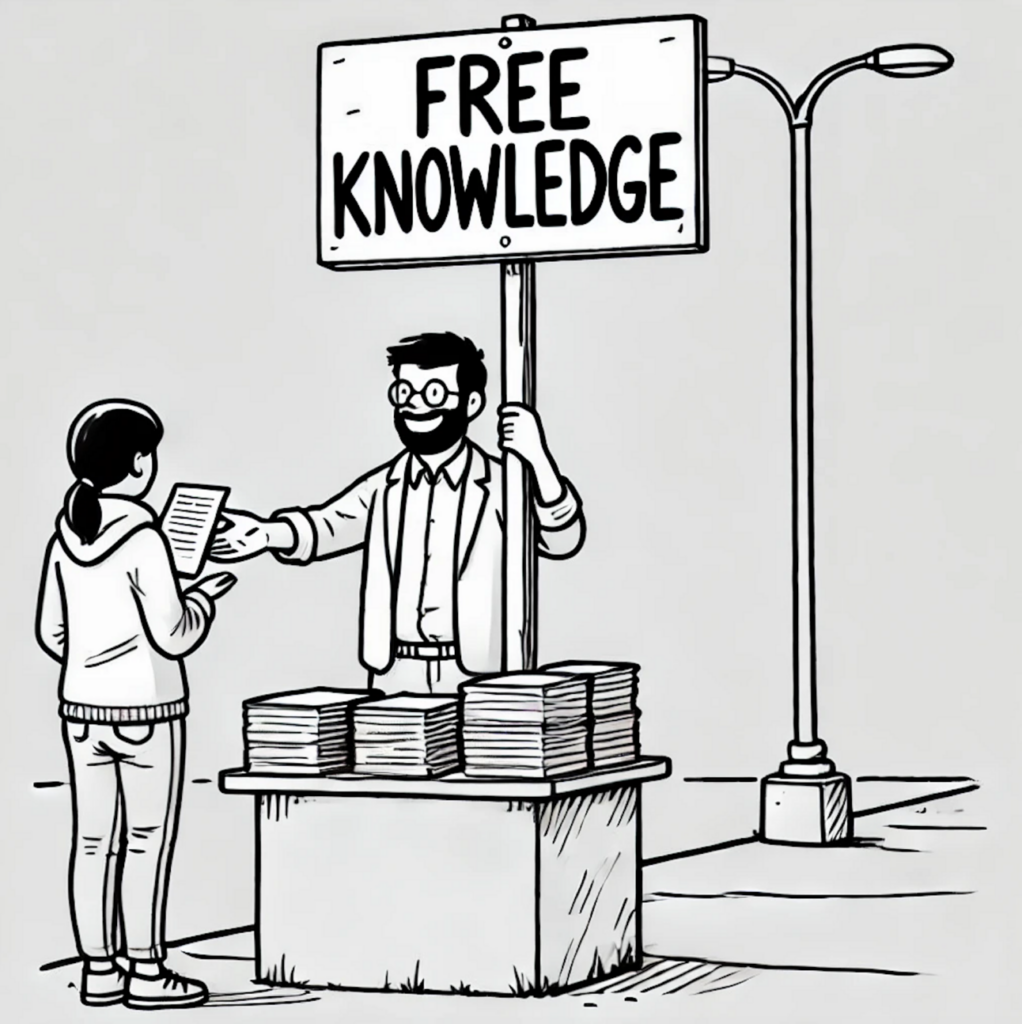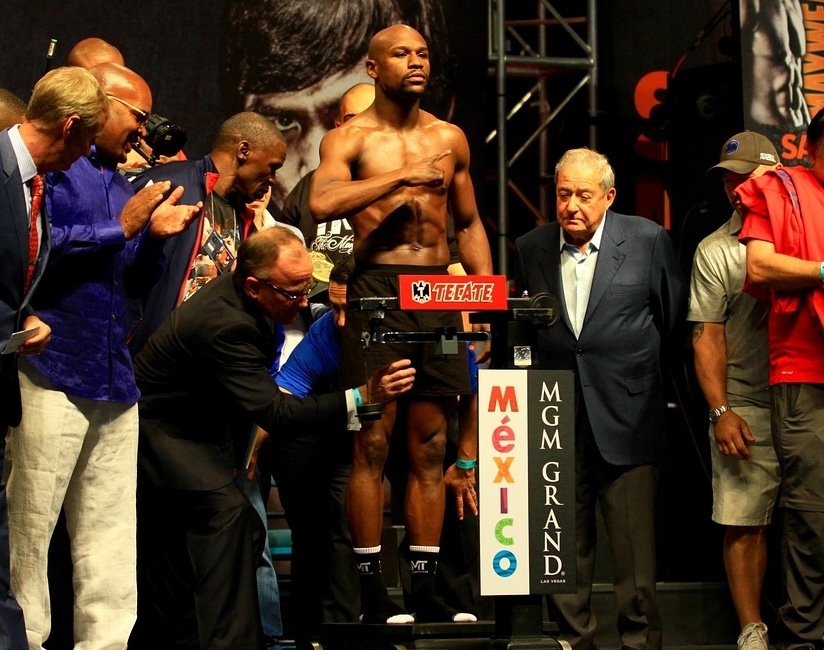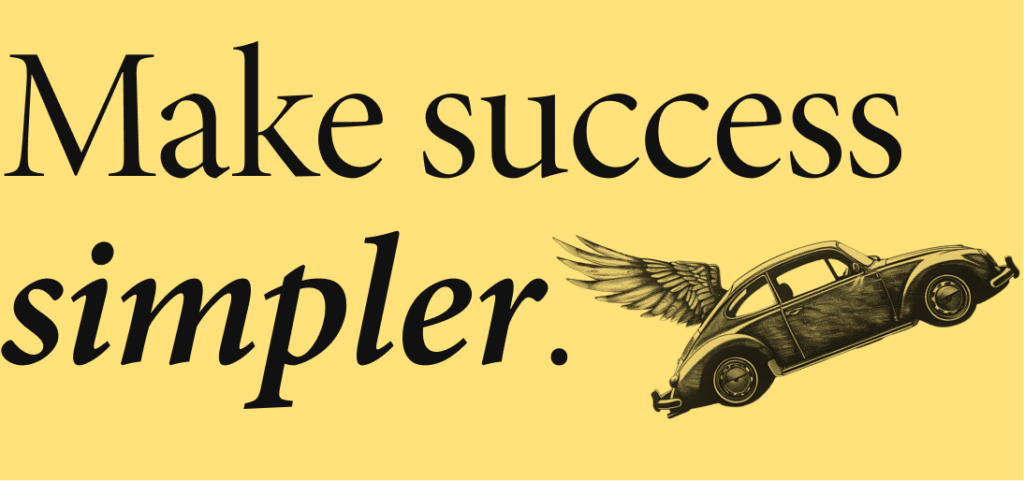Welcome to One Thing Better. Each week, the editor in chief of Entrepreneur magazine (that’s me) shares one way to be happier and more effective at work — and build a career or company you love.
Today’s edition is sponsored by Kick, my favorite bookkeeping software (for real!). See details at the end of the newsletter.

Want to attract new business? Or just build valuable relationships?
Here’s one of the best ways: Give away your knowledge.
This may sound like a bad idea. Won’t people just steal your work and not pay you? Won’t they abuse your time?
In fact, the opposite is true: When you give away knowledge, you build trust and authority — and then people want you more!
Today, I’ll show you how this works, and how to use it to your advantage.
But to start, I’ll tell you about someone who did not do this — and how it led to the most awkward interview of my career.
The man who wouldn’t give
I interviewed Floyd Mayweather Jr. in 2009. He was the world’s greatest boxer then.
You might think this sounds fun. It was not.

I worked at Men’s Health at the time, so I asked him what we asked all major athletes: “Could you share one of your workout routines?”
“I’m not telling you that!” Mayweather shot back. “If I share my workout, then my competitors can copy it. I don’t give away my secrets.”
I tried to get him to share something, anything. He wouldn’t. That was the end.
I left thinking: This insecure man doesn’t know what makes him great.
Because here’s the thing: Floyd Mayweather didn’t succeed because of his training. He succeeded because of his ability to put that training into action, which is hard and not easily repeatable.
Just because you train like Mayweather doesn’t mean you can fight like Mayweather — which means that Mayweather could have given it all away. He just chose not to.
How to give it all away
I was recently telling this story to Dan Norcia, who heads partnerships at a company called Pilothouse. He laughed — because he thinks the exact opposite of Mayweather.
Pilothouse helps brands improve their ecommerce, and they’re very good at it. They’ve driven more than $500 million in business for clients.
How? They’ll just tell you! They publish tons of instructional materials, like a newsletter and podcast. They’ll do social media livestreams, helping founders improve their websites. And they even appear regularly in my group for CPG founders, where they literally show our members how to increase their DTC sales, step by step.
“When we give away our knowledge,” Dan told me, “people are grateful, and they trust our thinking. Then they try to implement this stuff themselves and get overwhelmed, and that’s when they want to hire us.”
This is what Floyd Mayweather did not understand: Your knowledge might be valuable, but your ability to execute is everything. When you’re confident in your abilities, “knowledge” stops being the thing you protect — and it starts being tool you use to attract others.
How to put this into practice
Imagine giving someone a penny — and then it turns into a $100. That’s what it means to share knowledge. It is cheap for you to share (because it’s just stuff in your head), and incredibly valuable for them to receive (because it can transform their business or life).
That makes it an incredible currency: You can give away your knowledge without much effort or sacrifice, and reap outsized rewards for it.
Here are three ways you can do that now:
1. Post on LinkedIn
Maybe this sounds predictable or perfunctory. But hear me out.
LinkedIn’s algorithm specifically values “knowledge and advice.” (I was the first person to report that.) I’ve seen this validated in my own work. Many years ago, my LinkedIn posts were either promotional or “inspirational” — but neither worked. Then I got specific and tactical, and the response was large.
I’m now nearing 200,000 followers. LinkedIn is my #1 source of newsletter subscribers. (Maybe you subscribed because of LinkedIn? Thank you!) And I regularly get DMs from people asking to work together.
Sharing knowledge on LinkedIn is simple: Think about the last time you gave advice to a peer. Did they find it useful? Turn that advice into a post. Try that once a week. You’re sending out a Bat Signal that says: “Here’s what I’m an expert on, and here’s why you should trust me. “
2. Take the call
Do people ask you for advice? Give it to them.
Seriously. What’s the harm? You lose a little time? You give away a few ideas? That’s a small price to pay for potentially enormous value.
About a year ago, for example, an acquaintance invited me to lunch. He had an interesting new project and wanted my thoughts.I had lots of them. He then asked if I’d talk with his team. Soon we were chatting regularly — for no money, and no specific expectations. Relationships were built. Fun was had.
Now they’re paying me for monthly consulting.
Of course, this doesn’t happen all the time. Most meetings go nowhere… but some create lots of value. It’s why I’ve come to treat time the way a venture capitalist invests in startups: You put a little time into a lot of things — and while most of them flop, a few will produce life-changing ROI.
Importantly, that ROI does not have to be financial. I’m busy, like you are, so I can’t take every meeting or help everyone. So before I agree to a call or meeting, I always ask myself: “Do I see how this relationship could be additive?” And then I define additive. Maybe they help me think better. Maybe they add joy to my life. Or maybe they’re working on something that, one day, I’d like to work on too.
3. Proactively teach — or trade!
You know something that others don’t. So why not offer it?
Two examples spring to mind, both from friends who used to work in media…
TEACH: My friend Sam was once a reporter, and then got a job at a small law firm. Lawyers are notoriously bad writers, so Sam had an idea: He could host a writing workshop for his colleagues! He offered it to a few lawyers, they told a few more, and soon Sam was hosting monthly workshops — making him extra valuable.
TRADE: Annie used to work in media, and then started a cookie company. She needed some help with branding, but couldn’t afford an agency. So she approached one with an offer: “I could help you get more media attention for your work, and you could help me rebrand my cookies.” The agency agreed. Then they swapped knowledge!
Remember what makes you most valuable
Floyd Mayweather would never do any of this. Too bad. That guy knew things.
So please, don’t think like Mayweather.
A true champion should be able to give away their knowledge, and still beat anyone who copies it. Because victories aren’t built on knowledge alone. They’re built on execution — and that’s where you are unique.
Your knowledge is simply the evidence of your greatness. When you give it away, you only become greater.
That’s how to do one thing better.
This bookkeeper saves me so much time!

A few years ago, I signed up for one of the major bookkeeping services. I hated it. So complex! Too many options!
Then I got introduced to Kick — and as soon as they walked me through the platform, I laughed out loud at how simple and easy it was.
True story: I begged them to NOT add more features! It’s so simple, it’s perfect. My books are done automatically and accurately in real-time, my account is optimized for tax savings, and when tax season rolls around, it’s 10x easier than before.
Are you a freelancer? Starting a business? Run multiple businesses? Whatever the case, try out Kick. It takes 5 minutes to set up your accountant, and you’ll be laughing out loud alongside me — knowing that you don’t need to go crazy over accounting anymore.
*sponsored
